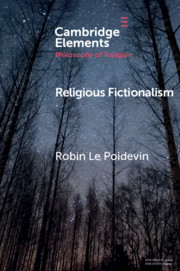Element contents
Religious Fictionalism
Published online by Cambridge University Press: 24 April 2019
Summary
- Type
- Element
- Information
- Online ISBN: 9781108558198Publisher: Cambridge University PressPrint publication: 25 April 2019
Bibliography
- 25
- Cited by

